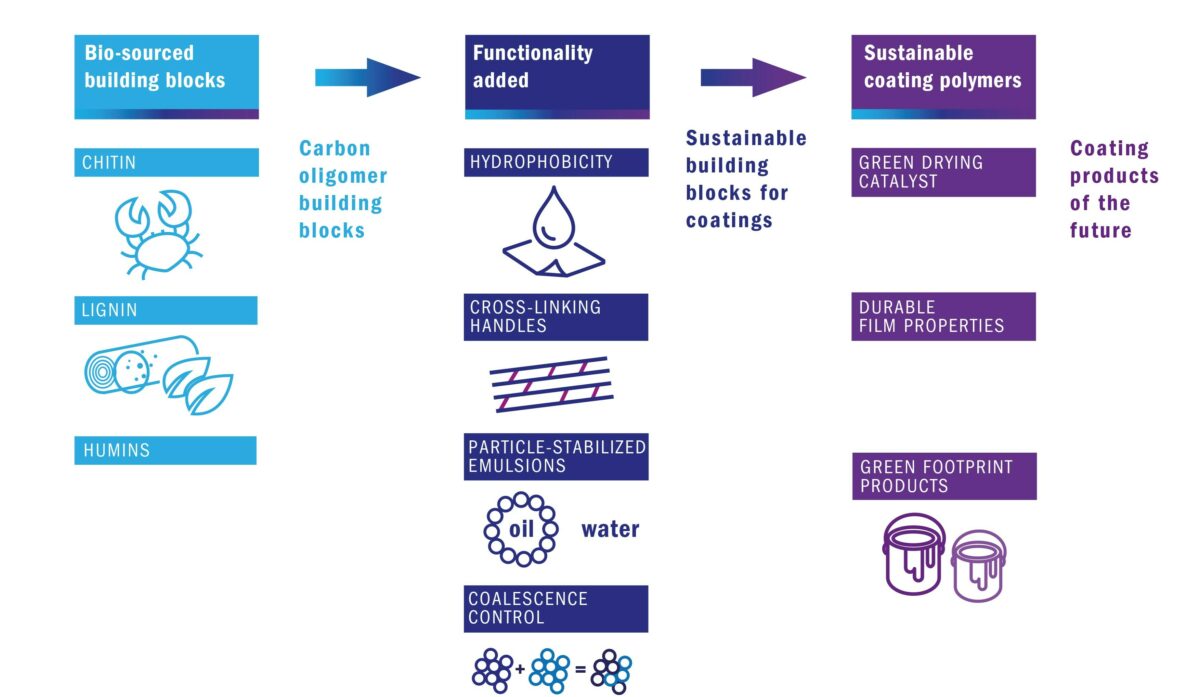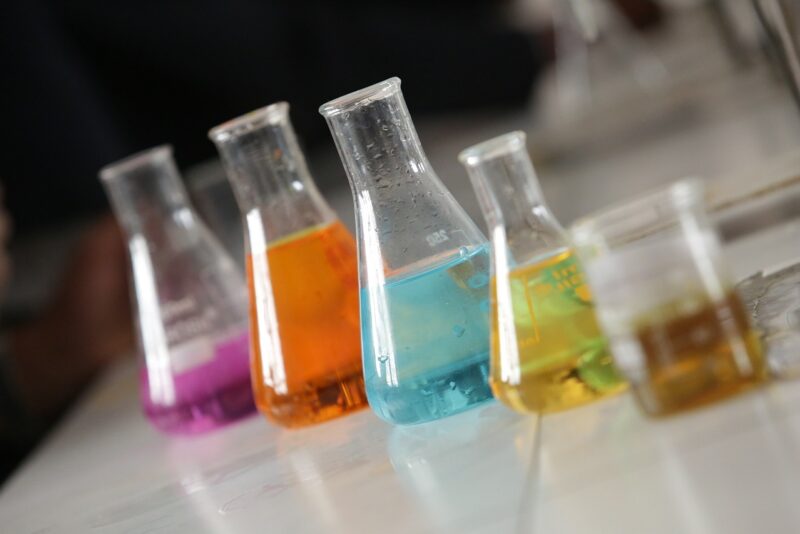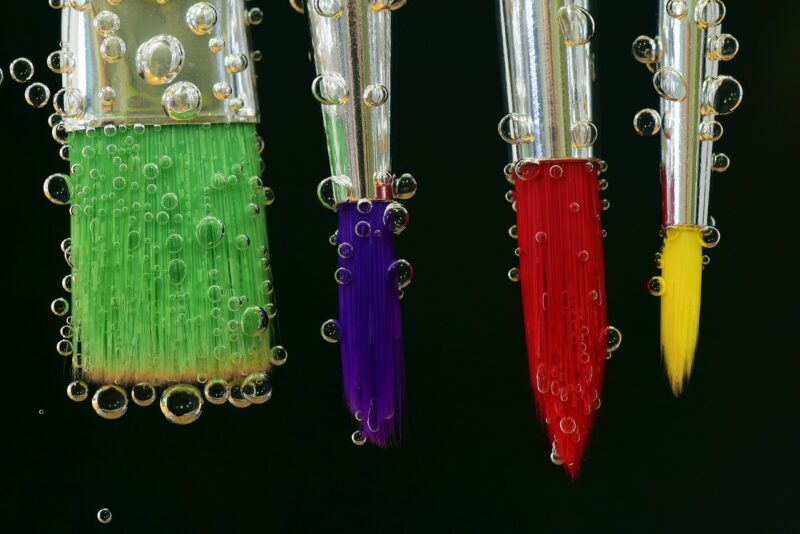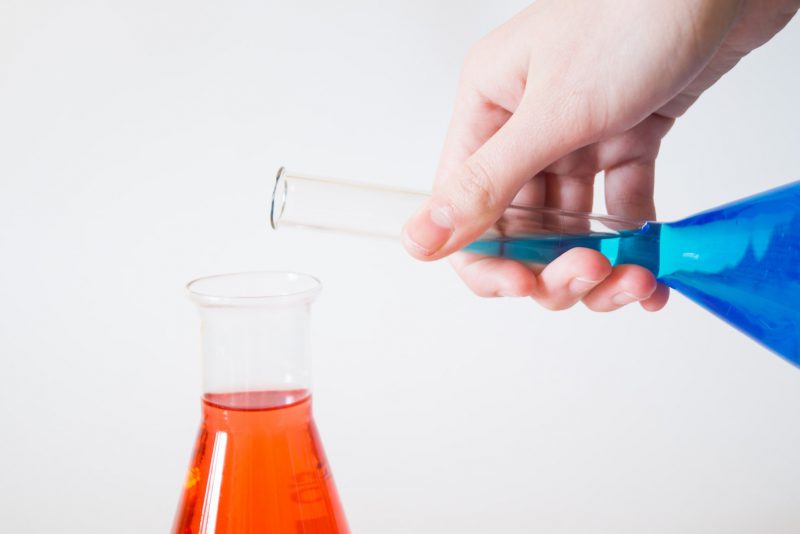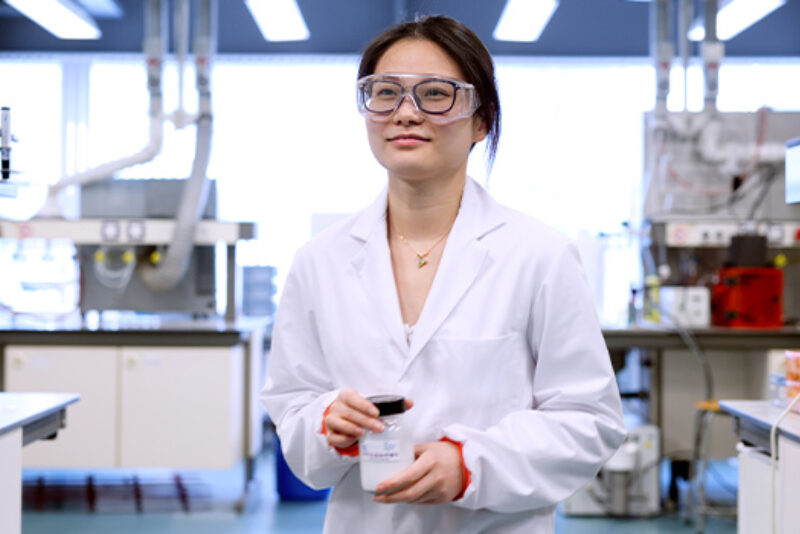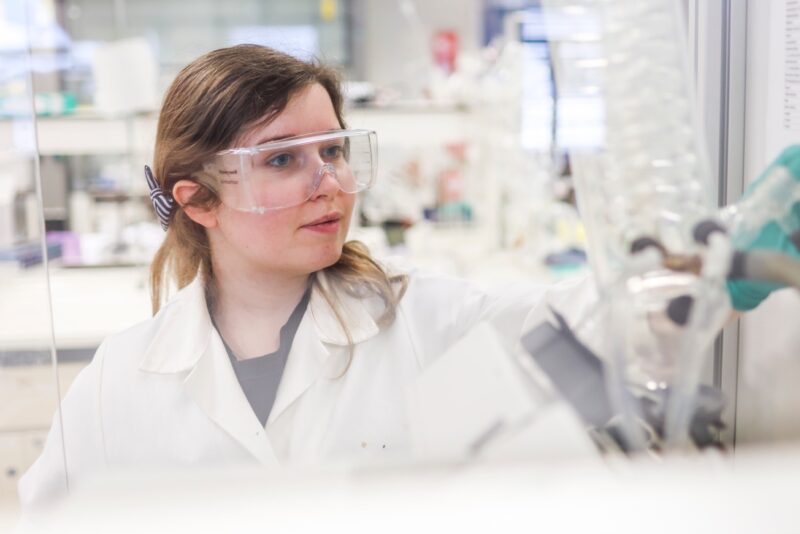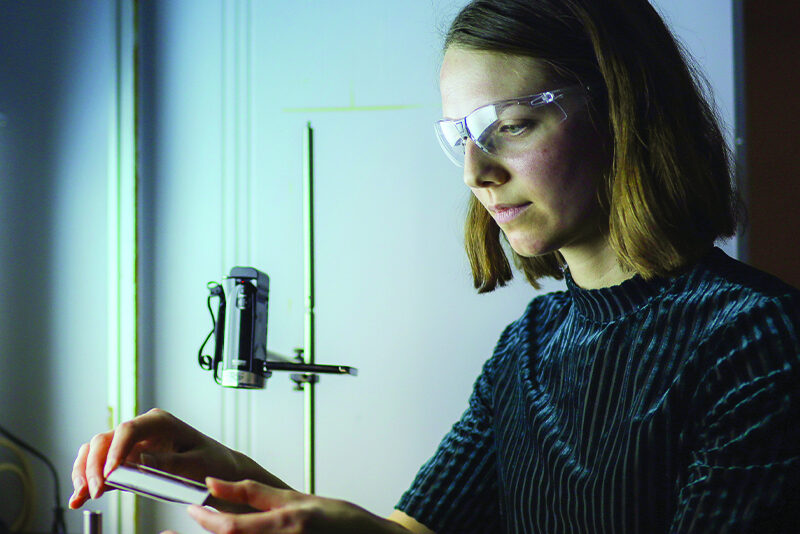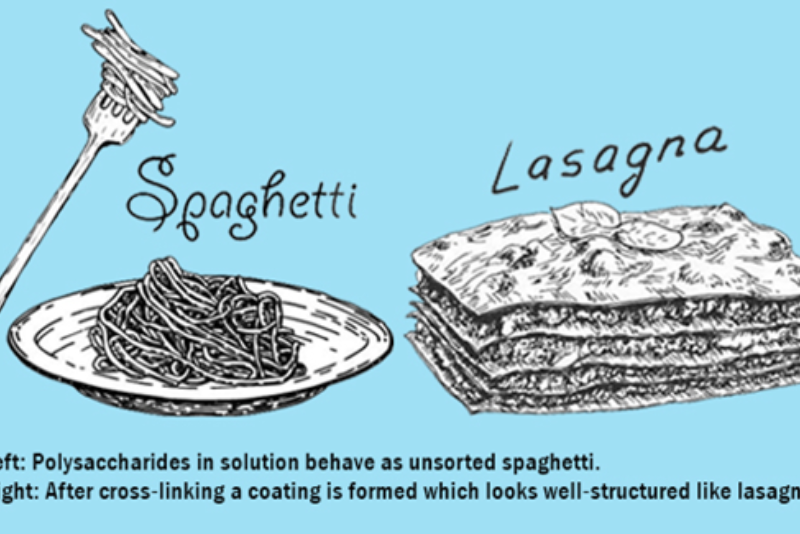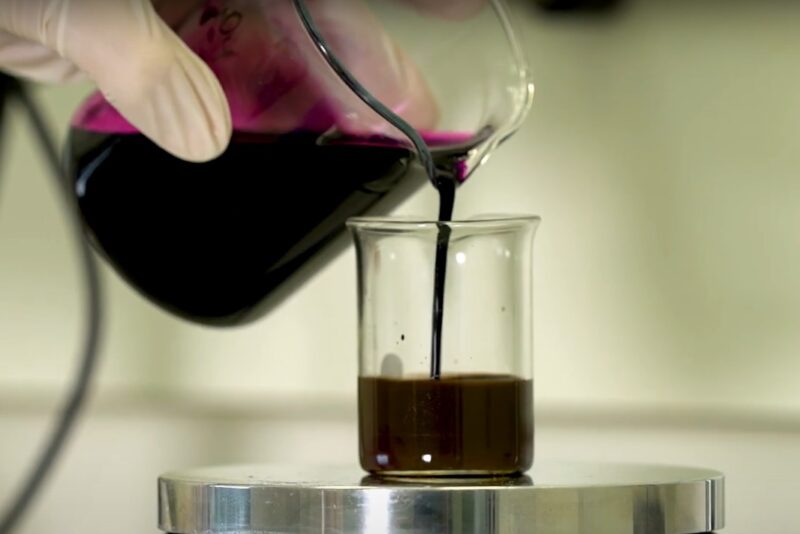ARC CBBC is working on greener approaches to the design and manufacturing of paints and coatings, thereby aiming for a more sustainable future. By rethinking the way chemical building blocks could be applied in future coatings, we explore new chemistry for the purpose of product enhancement.
Coatings: Cross-linking in waterborne coatings with new building blocks
ARC CBBC aims to replace fossil-based feedstock with bio-based materials and to further develop water-based paints. This way, the market share of the traditional solvent-based paints and lacquers is reduced, enabling a transition to the establishment of a sustainable coating industry. Additionally, we want to improve product properties. Our industry partners all contribute with their product knowledge and know-how in the development of coatings. The expertise of our partners in chemical synthesis, chemical conversion and catalysis, colloid chemistry, and bio-based materials, and other particular strengths of academic research groups in the Netherlands, will contribute to design the coatings of the future. Also, a responsible use of material resources means that by-products from chemical production processes should be considered as useful reactants for the production of new chemicals. Smart hybrid materials will enable us to lower our ecological footprints today and in the future.
Sustainable binders for paints, inks and lacquers
This multilateral project will explore routes towards novel sustainable binders for use in paints, inks and lacquers that can be obtained by chemical conversion of bio-based polymers such as carbohydrates including cellulose, humins and chitins. These can be turned into active and functional oligosaccharides and related chemical building blocks that, in turn, will be converted into functional coating polymers. For this to work, we will design both new processes and new catalysts.
New concepts of formation and cross-linking
We will also explore novel approaches for high quality coating film formation and novel chemistry for cross-linking of polymer coatings, both important to durable and functional coating products. Advanced spectroscopy and microscopy will be exploited to follow the building block conversion processes in detail from the intramolecular level of functional chemical groups to the supramolecular level of waterborne coatings and the resulting coating films. With this multilateral project, we aim for new concepts of design and synthesis for more sustainably produced water-based coatings.
In this project, 10 researchers are exploring new chemistries to provide the coatings and materials of tomorrow.

